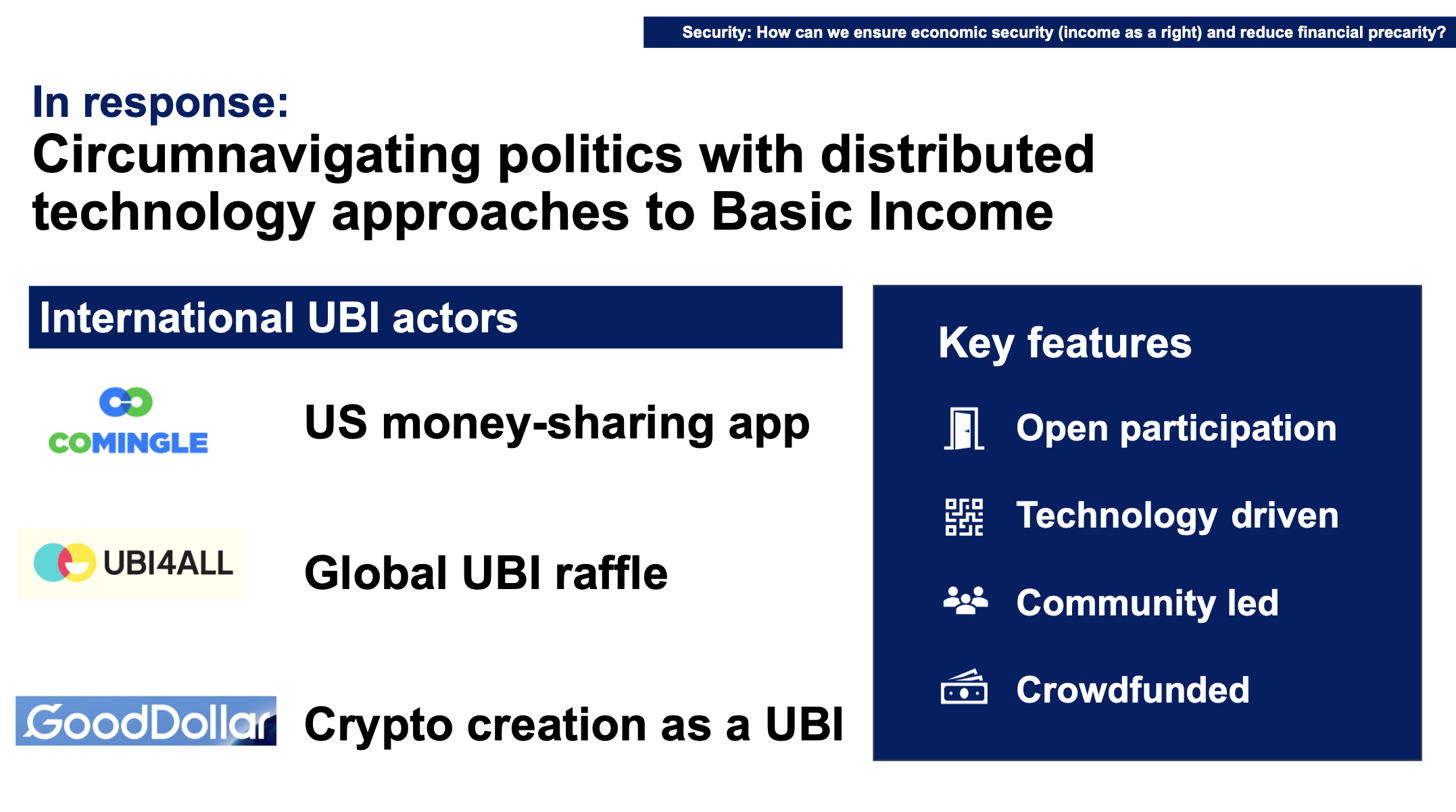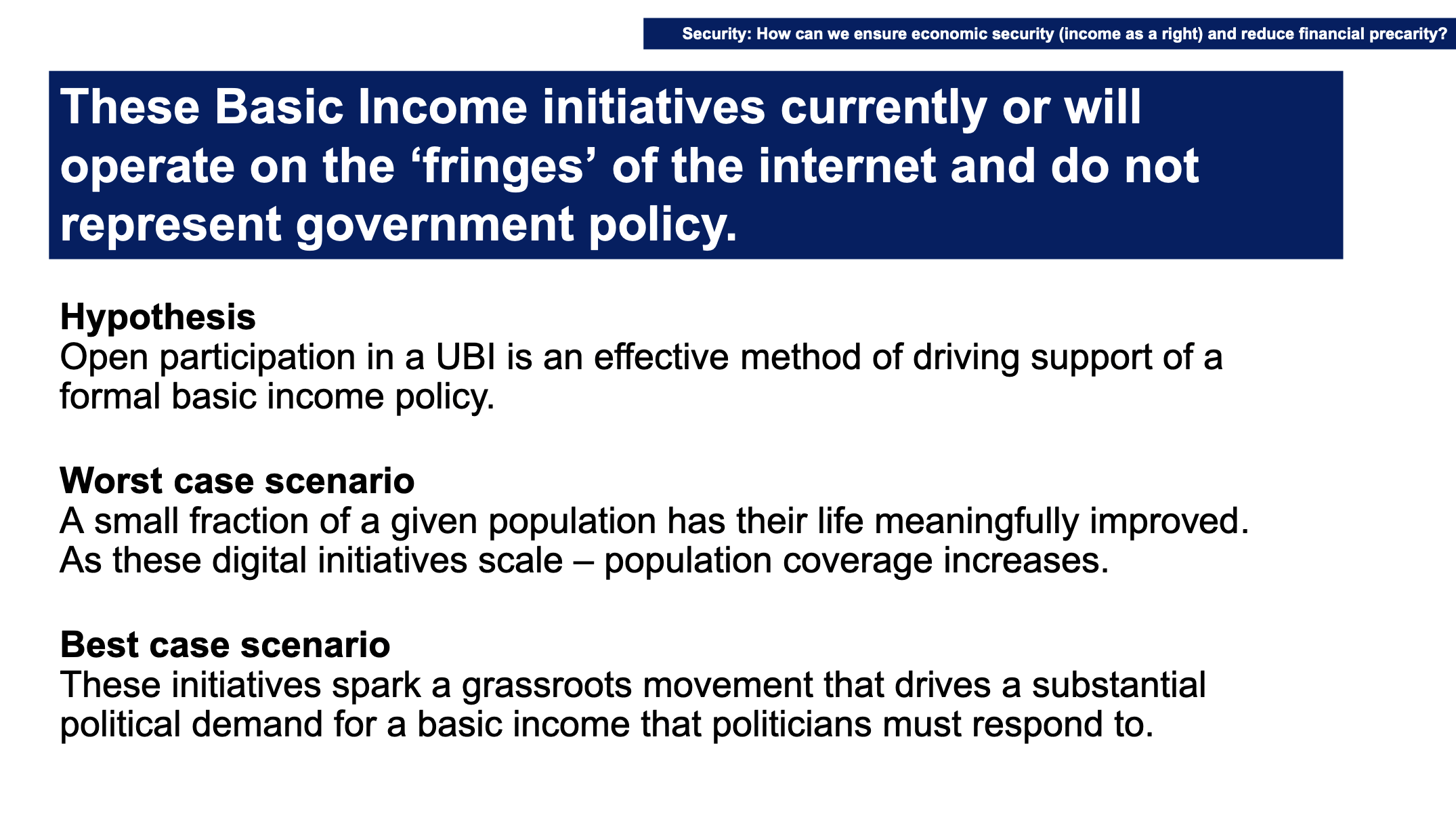Circumnavigating politics with distributed technology approaches to Basic Income
Jessica Chew | Tue Jan 16 2024

The Australian Basic Income (ABI) Lab, a research collaboration between the University of Sydney, Macquarie University and the Australian National University, recently hosted an online workshop on social policy on 8th December 2023. As an ABI Lab fellow, I responded to the prompt below on ‘Security’ with a 12-minute presentation piece.
ABI Lab workshop prompt:
We are now at the halfway mark of a new Federal Labor government. There have been some changes implemented in relation to social policy, but these reforms have fallen short of the expectations of many. What are we to make of the future possibilities for ensuring adequate, unconditional and regular incomes for all?
Basic Income can be used as a stimulus for asking particular questions and provoking debate about the status quo, rather than advocating for a Basic Income per se.
In our Social Sciences Week seminar in September, Dr Joe Chrisp (University of Bath) argued Basic Income can be used as a mirror to highlight the most problematic and prominent features of a country’s social security system that shape the politics and policy landscape of social reform. Likewise, Kathi Weeks has long talked about Basic Income as a demand that does important political work.
We want to use this workshop to think with you about some of the key enduring questions that Basic Income raises, the kinds of important policy and political conversations underway, and the ones we still need to have.
We have posed three questions centred on three themes that we think can help inform the Australian debate. We invite short papers or provocations that address one or more of these questions for the workshop.
Security: How can we ensure economic security (income as a right) and reduce financial precarity?
Adequacy: How do we ensure everyone has ‘enough’ and address poverty?
Recognition: How can we value diverse contributions and recognise historical injustices beyond the rewards of the labour and capital markets?
I noticed an international trend of UBI actors electing not to wait for government action and instead trial digital solutions for distributing a basic income. The three applications I discuss are summarised below.

My brief 11 slide presentation provides an overview and key details of the three technology initiatives above. You can access the slides here.
I wanted to focus on these organisations to highlight how external community/technology actors can implement UBI solutions that drive public interactions with UBI and hopefully subsequent political demand for scaled government programs.

Ultimately, I think getting a UBI formally implemented in Australia and around the world will take a multi-pronged approach of government lobbying, activism as well civil society ‘just doing it’ like Comingle and GoodDollar.
This blog was originally published on theauthor’s website .